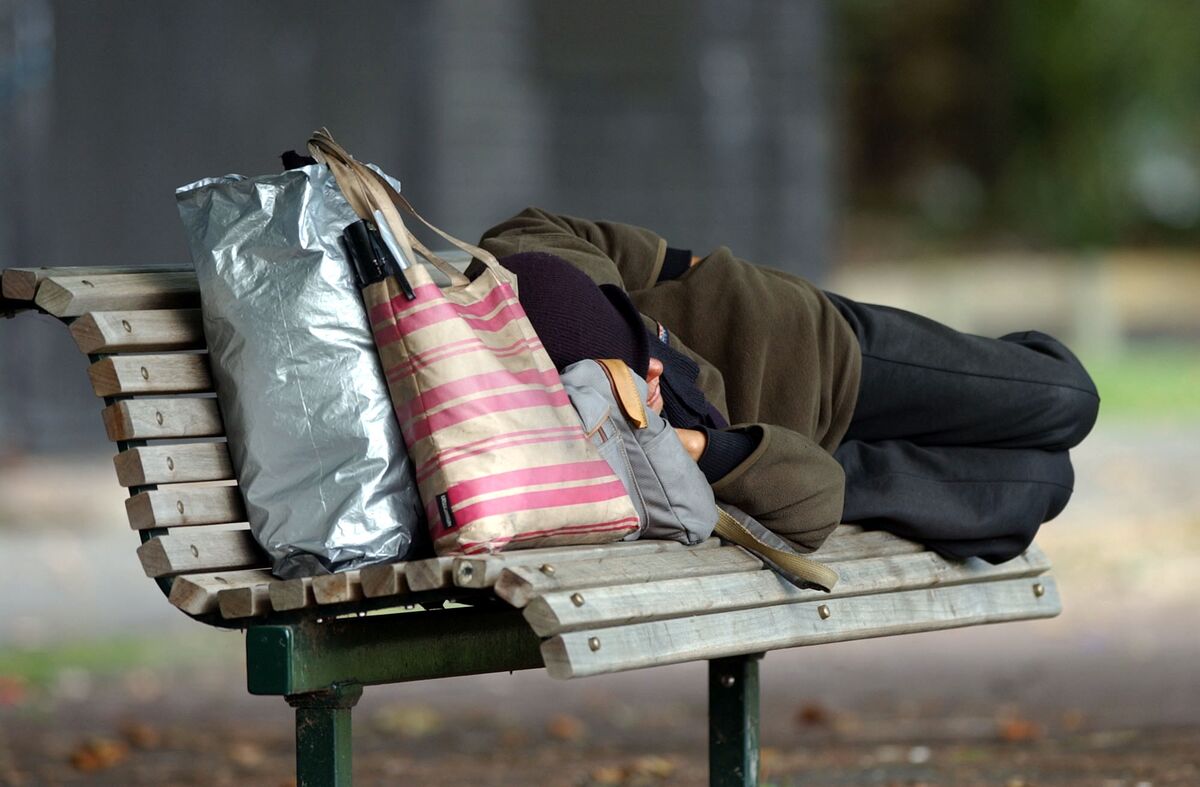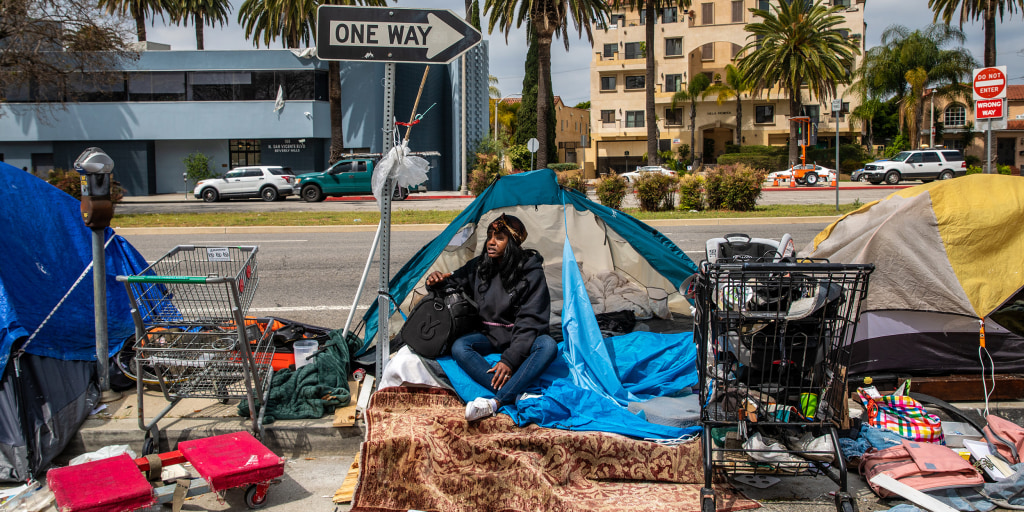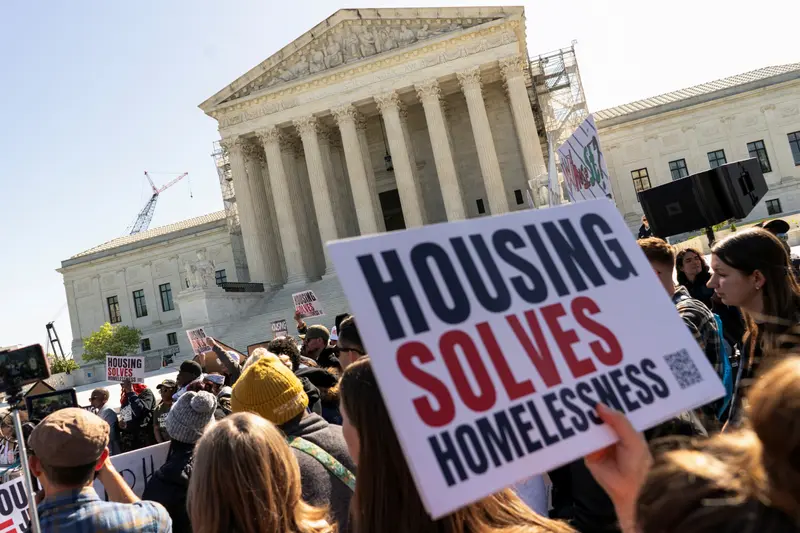Advocates for unhoused people are sounding alarms following the U.S. Supreme Court’s recent decision favoring Grants Pass, Oregon, allowing the city to enforce a ban on public sleeping with bedding. This ruling is seen as a setback by critics who argue it will exacerbate the homeless crisis, pushing more individuals into cycles of incarceration, debt, and prolonged street living.

Impact of the Supreme Court Decision
In a 6-3 decision, the Supreme Court overturned a lower court ruling that had prevented Grants Pass from enforcing its camping ban. This decision empowers the city to fine and potentially jail individuals who violate the ban, impacting hundreds of unhoused individuals who have sought refuge in public spaces. Helen Cruz, a vocal opponent of the ban who provides meals to unhoused individuals in Grants Pass, expressed deep disappointment, calling the ruling devastating for those living without shelter. She highlighted the dire consequences this decision would have on already vulnerable populations, stripping away a glimmer of hope they had held onto.
Challenges and Disappointments for Advocates
National homelessness advocates, including Ann Oliva from the National Alliance to End Homelessness, voiced profound disappointment and concern over the implications of the court’s ruling. They fear that communities across the country, including major cities like Los Angeles, San Diego, and Seattle, will now adopt similar ordinances, further criminalizing homelessness instead of addressing its root causes.
The ruling was hailed by proponents as a necessary step to manage homeless encampments effectively. Evangelis, the attorney representing Grants Pass, described the decision as providing “urgent relief” for cities grappling with homelessness issues. However, critics argue that such measures ignore the underlying housing affordability crisis and perpetuate punitive approaches.
Looking Ahead: Solutions Beyond Bans
Experts and advocates emphasize that punitive measures like camping bans do not solve homelessness; rather, they compound its challenges. Ruth Sears, a local business owner in Grants Pass, echoed concerns that the ruling fails to offer meaningful solutions, noting that simply displacing unhoused individuals does not address the systemic issues causing homelessness.

According to legal experts supporting homeless plaintiffs, the enforcement of camping bans could lead to further marginalization, as fines and criminal records hinder individuals’ ability to secure housing and employment. Ann Oliva stressed the need for local governments to prioritize housing-focused solutions, including building shelters and expanding outreach services, to support unhoused communities effectively. “Housing-focused shelter and outreach will keep people safe and healthy as possible while we are building more affordable housing for people − that’s the path forward,” Oliva emphasized.
As cities grapple with the implications of the Supreme Court’s decision, advocates urge a shift towards compassionate and evidence-based policies that address the root causes of homelessness. The debate underscores the critical need for comprehensive solutions that prioritize housing stability and support services for all individuals experiencing homelessness across the United States.
